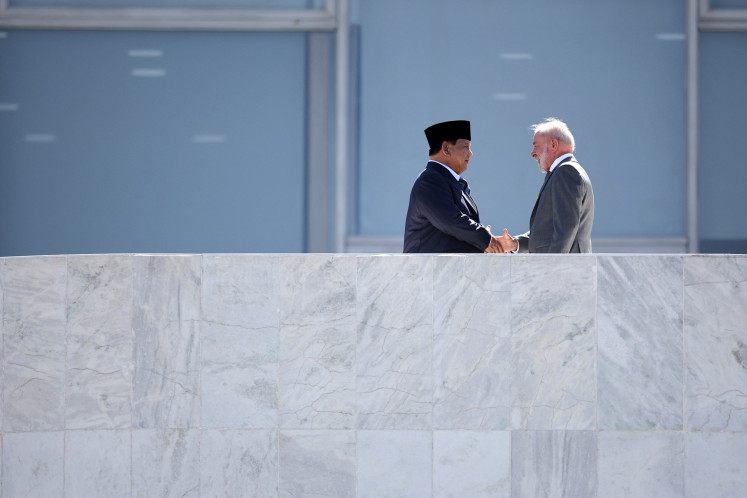Popular Reads
Top Results
Can't find what you're looking for?
View all search resultsPopular Reads
Top Results
Can't find what you're looking for?
View all search results'Washington Post' sale a sign of newspapers' future, not death
Taiwan woke up yesterday to the news that the Graham family had agreed to sell The Washington Post to Jeff Bezos, founder of Amazon
Change text size
Gift Premium Articles
to Anyone
T
aiwan woke up yesterday to the news that the Graham family had agreed to sell The Washington Post to Jeff Bezos, founder of Amazon.com. The end of the eight-decade newspaper dynasty shocked newsrooms across the US and by extension the world. But as Donald Graham, head of The Washington Post Company, told the paper's staff on Monday US time: the sale is not sad news except 'for me'.
To the detractors of the newspaper business, the sale symbolises what's wrong with the industry: the medium's loss of influence as the main portal for information to online competitors, and the resulting hemorrhage of revenue as old-school owners are too slow to adapt to the new digital reality (The Washington Post erected an online pay wall only recently, trailing most of the brand-name newspapers). It is yet another milestone in the newspaper industry's slow but sure fall into oblivion; another sign that the medium has outgrown its purpose.
The deal, however, represents the exact opposite of such views and could mark the beginning of a new age for newspapers. First of all, the fact that a technology tycoon is willing to pay US$250 million out of his own pocket (the buyer is Bezos, not Amazon) for The Washington Post says something about the potential of the business. The billionaire, who was ranked by the Harvard Business Review as the second-best-performing CEO in the world for the past decade (after Steve Jobs of Apple), is also a good candidate to take over the stewardship of the newspaper.
'The Post could have survived under the company's ownership and been profitable for the foreseeable future,' Graham said, referring to the deal with Bezos. 'But we wanted to do more than survive. I'm not saying this guarantees success but it gives us a much greater chance of success,'
The rise of Amazon has disrupted traditional media businesses such as publishing, book selling, music and video makers and distributions. The resulting changes have not been good for all in these businesses, for example major bookstores.
From a purely business point of view, newspaper analysts predicted that content from The Washington Post will be integrated with Amazon products such as its Kindle e-reader. The idea of integration of content providers, device makers and media distributors has long been a trend. Technology businesses in Taiwan, such as smartphone maker HTC, have also been busy making similar strategic partnerships with media companies.
There could be, however, more to observe than mere business integration. One of the reasons behind the sale given by the Grahams is the benefit of keeping the newspaper from the quarterly profit scrutiny that publicly traded companies must endure. With reduced pressure for short-term profits, the newspaper can have more room for much-needed reshaping to meet the Internet era.
Such reshaping does not necessarily mean a complete embrace of the current instant-response and opinionated culture of the social media age. One of the key values of newspapers is the fact that they merit the quality of information over the speed of its distribution, that they put the constant stream of unending breaking news into a larger prospective by providing in-depth reports and analysis by writers who are willing to put their names behind their words. Social media and microblogs are not the example for the future newspaper model. They can serve rather to compliment newspapers. Future readers can keep in touch with the latest news via social media while learning more about the whole story with newspapers armed with in-depth material and interactive features.
Whether the innovations to be brought about by Bezos at The Washington Post will be good for the newspaper industry is yet to be seen, but there is no doubt that a business that has been faulted for being slow to change is going to experience some major changes.










